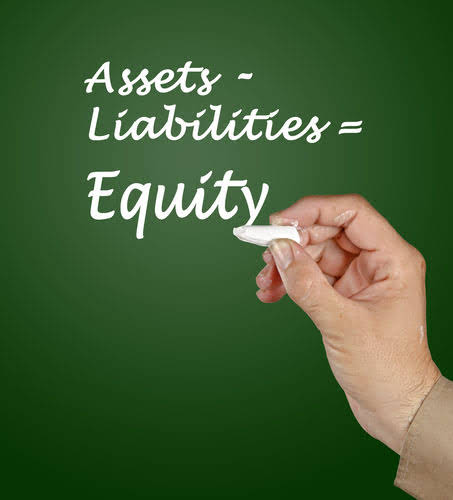
Accountants deal with numbers all day, so you want to show potential colleges that your math skills are strong by taking a math class every year and getting good grades in those classes. You’ll take introductory business classes once you begin college, but having a solid foundation of knowledge in high school can make these classes easier in college. Many students also find that taking classes on government and politics is helpful as well, as understanding political systems can help accountants in many future career paths. Visit us online today to learn more about our innovative accounting degree programs and to experience the GMercyU difference for yourself. We look forward to the chance to help you achieve your educational goals and to assist you on your journey toward your career in accountancy. Lastly, you’ll want to hone your communication skills, since they will be essential to forming strong working relationships with the individuals and management teams that will rely on your expertise.

Firstly, reflect on your skills, interests, and long-term objectives to determine if working with numbers and analyzing financial data aligns with your strengths and aspirations. It is important to consider whether you can get practical experience while studying as this may influence how long it takes you to become an accountant. It is almost impossible to find a job as an accountant without a high school diploma. The first step is to complete high school or get a recognized equivalent qualification, such as a General Educational Development (GED) certificate.
How To Become An Accountant: A Step-By-Step Guide
To help you earn those extra 30 credits to meet the 150-credit requirement, many schools offer five-year bachelor’s-to-master’s programs. You could also meet those requirements through a double major or elective courses. However, candidates with master’s degrees have higher pass rates on the CPA exam, so you may benefit from the extra coursework. Many employers and accounting firms require what is an accountant at least a Bachelor’s Degree in Accounting, Finance, or a related field for entry-level accounting positions. Additionally, becoming a Certified Public Accountant (CPA) typically requires a bachelor’s degree or higher, as well as meeting specific educational requirements and passing a rigorous exam. Job opportunities increase significantly for accountants who obtain a CPA license.
- The skills needed for a successful accounting career may not be what you think.
- Your decision on which suits you better can be based solely on the nature of the position.
- We’ve helped thousands of students get into their top choice schools, from state colleges to the Ivy League.
- While responsibilities vary depending on the company, cost accountants typically prepare budgets and purchasing documents.
- Lastly, you’ll want to hone your communication skills, since they will be essential to forming strong working relationships with the individuals and management teams that will rely on your expertise.
- Accountants might work for the government, a large company, a small company, as part of an accounting firm, or have their own practice.
Financial and managerial accounting are the two main areas of research within
PhD programs and students will elect to investigate one of these areas
in-depth. The result is a deep knowledge of how to apply methods culled from
economics and econometrics to investigate techniques within the industry. Remember that career paths can evolve, so stay open to new opportunities and be prepared for potential transitions. The best thing that you can do to ensure your future career is to stay updated with industry trends, acquire in-demand skills, and continue professional development. The details of an accountant’s job description and exactly what you can expect to do on a day-to-day basis may vary a great deal. But in most cases, you will, in your primary role as an accountant, go over financial records to ensure their accuracy and legality.
Become a Specialist Accountant or Work Towards a Chief Financial Officer (CFO) position
Licenses are issued by state accounting boards and require additional actions and professional development hours to maintain. According to the BLS, accountants earn a median annual salary of $73,560. Accountants can increase their earnings by earning a master’s degree and professional licensure (e.g., CPA certification). Accountants are highly trained financial professionals who prepare and examine financial records. Depending on your interests, you may find accounting to be an attractive profession. However, in order to become an accountant, you will need to meet a number of educational criteria and, depending on the type of accounting you want to do, gain certain certifications.
- Accountants can gain experience after earning a bachelor’s degree to decide whether the CPA credential will advance their career.
- You might like to consider the Online Master’s of Accounting (iMSA), offered by the University of Illinois Urbana-Champaign.
- See accounting courses for further information on each course provider.
- They usually hold a degree in math or statistics, plus industry-accepted credentials.
- Licenses are issued by state accounting boards and require additional actions and professional development hours to maintain.
You can do the Online Master’s of Accounting (iMSA), offered by the University of Illinois Urbana-Champaign on Coursera. Each state sets its specific requirements for your eligibility to take the Uniform CPA Exam. Many states require you to hold a bachelor’s degree, and most require or will https://www.bookstime.com/ require 150 hours of post-high school education. Some states require CPA candidates to be at least 18 to 21 years old, and a few require that you’re a citizen or permanent resident. You can also pursue management consulting, information technology, education, and financial planning careers.
Other Types of Accounting Certifications
Here is a breakdown of one path you can take, with personalized choices for you to make along the way. She earned a bachelor of science in finance and accounting from New York University. Matos began her career at Ernst & Young, where she audited a diverse set of companies, primarily in consumer products and media and entertainment. She has worked in the private industry as an accountant for law firms and ITOCHU Corporation, an international conglomerate that manages over 20 subsidiaries and affiliates. Matos stays up to date on changes in the accounting industry through educational courses. In summary, while a bachelor’s degree is typically required to become an accountant and advance in the field, there are some entry-level positions that may not require a degree.
- Many students studying
online may already be working in an accounting position and will complete the
online degree while still employed. - First, you must apply for the Uniform CPA Examination through NASBA’s website.
- Practice by incorporating them into your daily routines, such as by using a task management app for better organization.
- Even though the CPA exam is notoriously difficult, this should not discourage you from pursuing the certification.
- PrepScholar Admissions is the world’s best admissions consulting service.
- Accredited institutions — including accredited online schools — meet high standards for educating students.
Another way to enter the industry is through a work placement or voluntary or part-time role. Even work shadowing for a day can give you a feel for the kinds of accounting activities you might be involved in. When you secure an apprenticeship, you can gain practical skills while earning a wage and receiving the same benefits (including a holiday allowance) as other employees at the company. Despite the importance of qualifications to become established in the industry, the value of real-life accountancy work cannot be underestimated. For each accounting specialism, graduates also have the choice of whether to work in the public or private sector. See accounting courses for further information on each course provider.
In the accounting world, there are consequences for not filing on time or preparing accurate financial statements. It’s vital to maintain self-awareness and discipline to stay on top of your tasks. Soft skills also set you apart from other applicants in the accounting job market. Every accountant, auditor and financial analyst should be up to date with the latest trends in the field, such as how cloud computing and blockchain technologies impact accounting.
They also assess financial records for potential areas of growth and increased efficiency. Financial analysts research and report on investment opportunities for organizations. They forecast potential earnings by considering a company’s financial health and the state of the overall market. Compliance officers make sure their companies follow the law when it comes to financial records. Typically working for finance and insurance companies, actuaries calculate financial risk using probability models. They usually hold a degree in math or statistics, plus industry-accepted credentials.
tips for getting a job as an accountant
The median annual wage for this group was $77,250 in May 2021, compared to a median salary of $45,760 for all workers. However, some are former CPAs with advanced business administration or financial management degrees and experience. These C-suite professionals supervise and direct their organization’s financial activities. According to the AICPA, the majority of U.S. jurisdictions offer licensure paths to candidates with two years of relevant professional experience.















